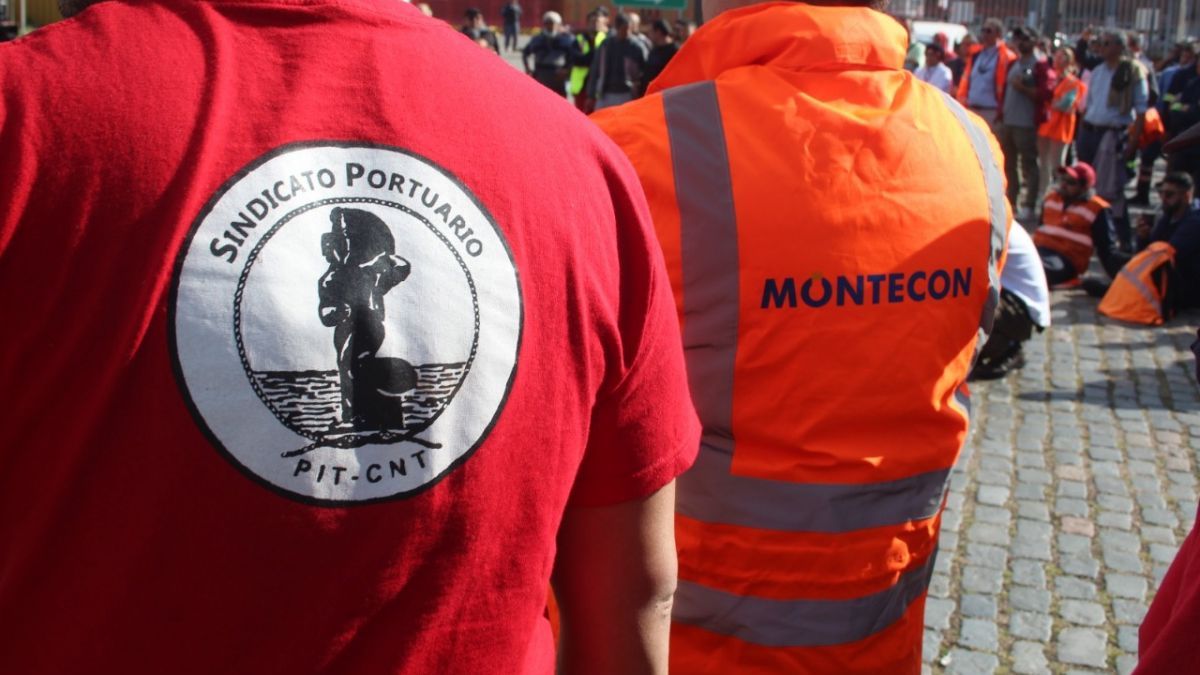He Single Port Union and Related Branches (Supra) carries out a 48-hour strike that began yesterday night and will last until 11 p.m. on Saturday, due to the conflict surrounding the negotiations of the Salary Tips that are currently taking place in Uruguay.
The measure of strength of the port workers’ union is of a “general and national” nature, and finds its reason in the problems presented in the negotiations for a new collective agreement in the 10th Round of the Salary Council who heads the Ministry of Labor and Social Security (MTSS).
To the 48-hour strike announced yesterday afternoon — which came into effect at 11 p.m. — there is also a 24-hour strike by the Ship Base Unionwhich will continue until 2 p.m. today.
Supra also ruled that the Base Union of the Cuenca del Plata Terminal (TCP) carry out a 48-hour strike, also from yesterday to Saturday.
Meanwhile, the union’s executive secretariat will meet next Monday the 18th to “continue analyzing the situation” and define what the next measures it will take will be.
Labor conflict on the rise
The labor conflict was one of the axes that marked the labor market during the first half of the year, according to the Economic Bulletin of the Chamber of Commerce and Services of Uruguay (CCSUy)to the point of doubling last year’s total average.
In this regard, and from Global Labor Conflict Index (ICLG) prepared by the Department of Social Psychology and Work of the Catholic University of Uruguay (UCU), a significant increase in problems in the workplace was observed. This index relates the days and hours of work lost due to conflicts with the days and hours of work that could normally have been worked. Likewise, it includes branch and company sectoral conflicts, and general strikes.
In this way, the ICLG corresponding to the first half of the year was more than double of the 2022 average, and almost ten times greater than the average for 2020, the first year of the current government —although it must be taken into account that it was the year most marked by the health crisis due to Covid-19 pandemic. According to the CCSUy, labor conflict is a marked trend of the last few months.
The increase in the index was mainly due to the general strikes called by the PIT-CNT, which so far this year were already four: two partial strikes and two national 24-hour strikes; a high number compared to what happened in the first half of previous years —mainly due to temporary issues such as 50th anniversary of the last coup d’état and the measures in rejection of the social security reform which was finally approved in Parliament.
As the CCSUy report indicates, between January 1 and June 30, 60 conflicts with interruption of activities —including the four general strikes of the PIT-CNT—, for which 1,063,914 work days were lost. 1,198,385 workers were involved in these measures.
Source: Ambito



